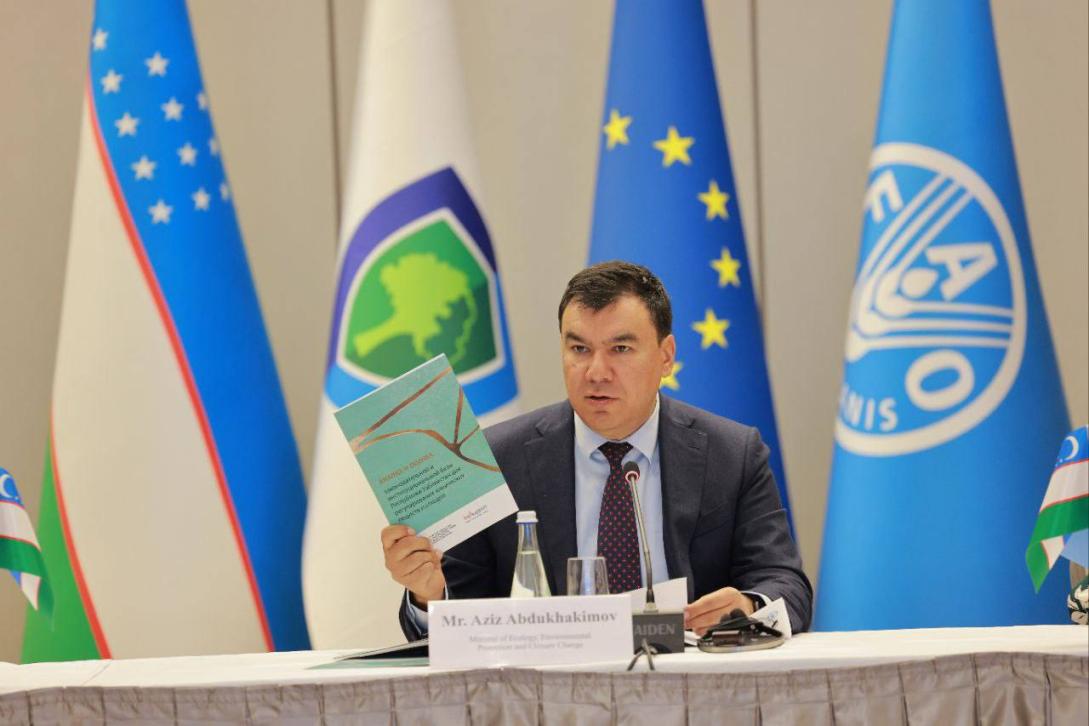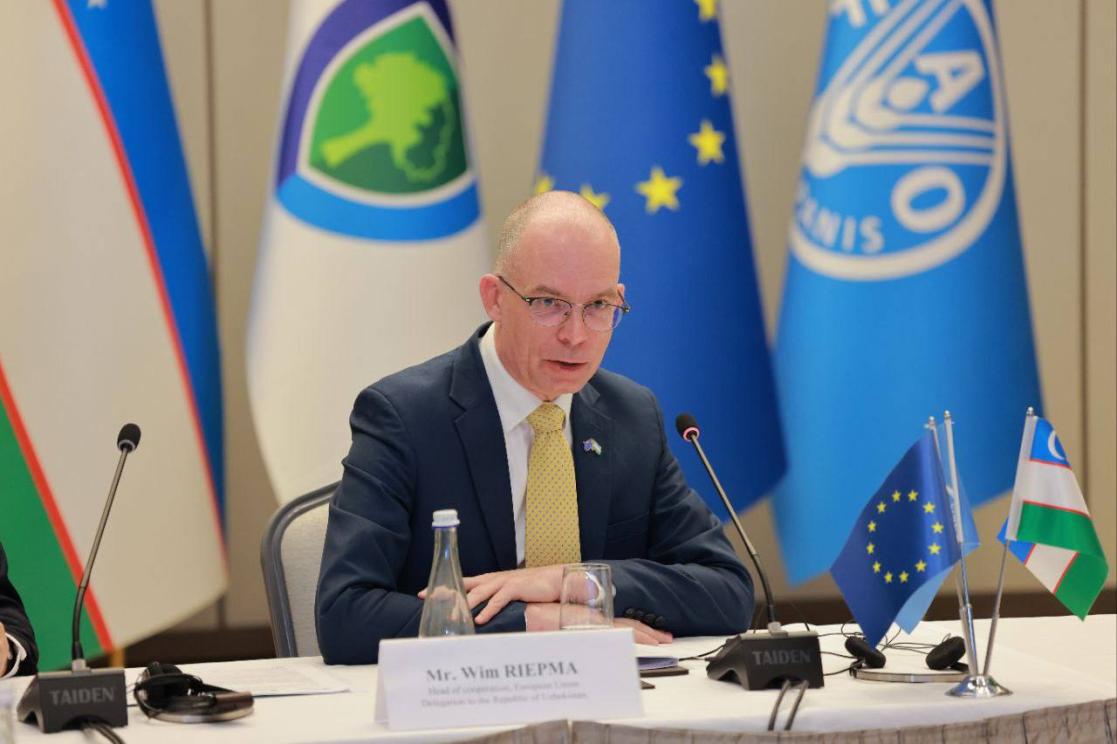European Union, Ministry of Ecology, Environmental Protection and Climate Change of the Republic of Uzbekistan and FAO join forces for healthy environment in Uzbekistan

1 May 2024. Tashkent, Uzbekistan. Obsolete pesticides represent a significant environmental and health hazard. These hazardous chemicals are often stored in deteriorated containers or buried in landfills, contaminating soil, water sources, crops and livestock, causing serious illnesses in humans and animals, and effecting flora and fauna. Safe removal and disposal of obsolete pesticides is a technically complex and costly activity.

Ministry of Ecology
Therefore, the Food and Agriculture Organization of the United Nations (FAO) together with the Ministry of Ecology, Environmental Protection and Climate Change of the Republic of Uzbekistan implement the project “Technical assistance for sound management of hazardous chemicals” with financial support of the European Union. On 1st May, the project’s inception workshop brought together in Tashkent representatives of the government, international organizations, NGOs, national and international experts. The participants were briefed on the project objectives, they reviewed the work plan and agreed on the conditions for further implementation of the project.
“We need to make re-inventory of the contaminated areas of former agricultural airfields and other sites, the last inventory of which was carried out in the 90s when more than 450 former agricultural airfields were identified. It is gratifying to note that, in cooperation with UNEP, we have developed an analysis and assessment of the legislative and institutional framework of the Republic of Uzbekistan for the regulation of chemical wastes,” noted Aziz Abdukhakimov, Minister of Ecology, Environmental Protection and Climate Change. We strive to reduce the use of highly hazardous pesticides by lowering their adverse health and environmental impacts, which will also make a significant contribution to achieving the UN Sustainable Development Goals.”

Ministry of Ecology
"Our partnership with the Government of Uzbekistan and FAO exemplifies a collective commitment to protecting the environment and public health, by cleaning up legacy waste, by improving waste management, and by reducing pesticide waste production. Together, we are not just managing chemical waste. Integrated pest management and awareness of health and environmental risks are key to a healthier, environmental friendly and economically viable agriculture sector" – stated Wim Riepma, Head of Cooperation Section, EU Delegation to Uzbekistan.
The project focuses on enhancing effectiveness of mechanisms and tools for both the management of hazardous chemicals and related wastes as well as the reduction of use of dangerous pesticides in agriculture, including the introduction/promotion and awareness raising among farmers of agricultural practices relying on alternative methodologies to replace pesticides or decrease their use. The project will also help to understand the size of the problem related to agriculture chemical wastes management in terms of both legacy wastes (volumes of obsolete pesticides and related materials like contaminated soils) and pesticide annual arising to be managed in Uzbekistan.
"The project implementation will enable an improved institutional capacity for sound pesticide management and better data on hazardous wastes in agriculture allowing development of a national waste management strategy. The project also aims to scale up green practices in the agricultural sector leading to reduced risks to farmers and consumers from the use of pesticides and to food production relying on less toxic pesticides and biological protection tools; and to increased institutional and public awareness of the risks from the uninformed use of hazardous chemicals in agriculture", - Sherzod Umarov, Assistant FAO Representative in Uzbekistan stressed.
It is important to note that today Uzbekistan is a party to the Stockholm Convention on Persistent Organic Pollutants and the Basel Convention on the Control of Transboundary Movements of Hazardous Wastes and Their Disposal. The implementation of a new joint project will open up opportunities to consider Uzbekistan's accession to other international treaties governing the management of hazardous chemicals, namely the Rotterdam Convention on the Prior Informed Consent Procedure for Certain Hazardous Chemicals and Pesticides in International Trade and the Minamata Convention on Mercury. As an ultimate goal, with financial support from the European Union, the joint project of the Ministry of Ecology, Environment and Climate Change and FAO will contribute to strengthening the capacity of Uzbekistan to meet the country's national obligations under the Paris Agreement, implement national policy priorities and support sustainable socio-economic development with a focus on rational use of resources.
